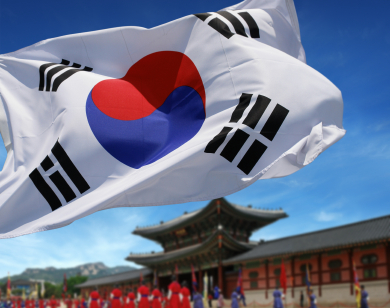Positive Outcome Achieved in U.S.-South Korea Agreement
April 5, 2018
 The United States and South Korea announced that the two countries reached an agreement “in principle” in late March on the bilateral free trade agreement known as KORUS, and in the process achieved a positive outcome for America’s dairy sector. As the trade agreement was renegotiated, NMPF had stressed the need for the United States to remain in this agreement, and pursue targeted changes and solutions to several implementation concerns.
The United States and South Korea announced that the two countries reached an agreement “in principle” in late March on the bilateral free trade agreement known as KORUS, and in the process achieved a positive outcome for America’s dairy sector. As the trade agreement was renegotiated, NMPF had stressed the need for the United States to remain in this agreement, and pursue targeted changes and solutions to several implementation concerns.
KORUS has been instrumental in preserving U.S. competitiveness in a key dairy market. Without it, the U.S. dairy industry would be the only major dairy supplier subject to 36-percent cheese tariffs or lacking a country-specific tariff rate quota for milk powder.
With this agreement, the U.S. dairy industry will remain a competitive dairy exporter to South Korea in a world in which most other major dairy exporters have access to the South Korean market through other trade agreements. KORUS puts U.S. companies selling dairy products made in American on the same footing with dairy competitors from other countries.
In addition to securing modifications to some non-agricultural portions of the agreement, USTR also tackled concerns related to customs procedures. This refers to whether products coming from the United States are found by Korea to qualify for preferential access under KORUS. NMPF welcomed progress in this area, as it has been a concern in recent years for U.S. dairy exporters whose products risked losing their preferential tariff access rights to Korea if the shipment was routed through a Canadian port rather than remaining in U.S. territory.
On March 29, NMPF and USDEC commended USTR for successfully addressing the specific trade concerns highlighted by various U.S. stakeholders, while also preserving the overall agreement that has been so beneficial to the U.S. dairy industry.






